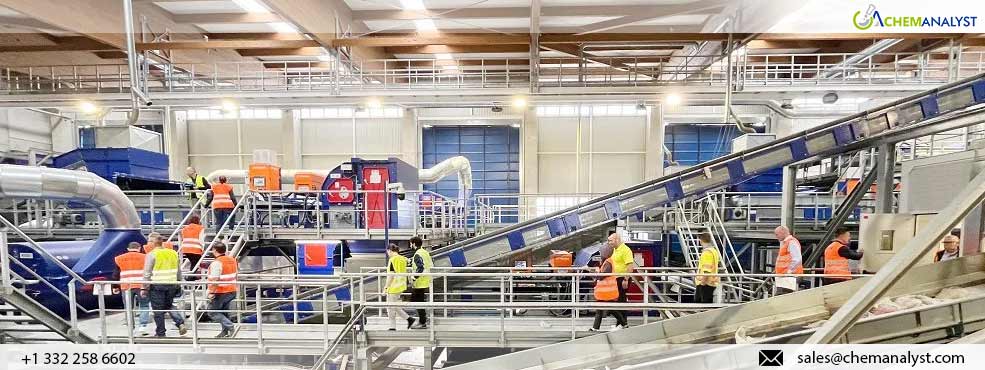Welcome To ChemAnalyst

Iren, a prominent waste management company, has launched Italy’s largest plastics sorting facility, Circular Plastic, located in Borgaro, near Turin. The state-of-the-art plant was designed and built by Germany-based sorting machinery manufacturer Stadler, with a capacity to process 100,000 tonnes of material per year. Iren invested €45 million to develop the facility, which is capable of automatically sorting 17 different types of plastics, as well as aluminium and ferrous materials. The plant’s advanced sorting process delivers high-quality outputs, recycling up to 80% of input materials back into the circular economy, as per Stadler’s estimates.
The Circular Plastic facility functions by sorting incoming materials into three main categories: bulky, medium-sized, and fines. For bulky materials, Stadler’s specially designed STT5000 ballistic separator is used, ensuring efficient film separation. Once isolated, the films are further processed in a dedicated sorting cabin. The fines stream is handled on a dedicated line after it has been extracted through trommel screens and ballistic separators. These fines are passed through a magnetic separator and eddy current system to remove ferrous materials and aluminium. Small plastic components, such as bottle caps, are then recovered using Stadler’s optical separators.
The medium-sized materials are split into two processing lines, designated for 2D and 3D separation. Both streams utilize Stadler’s STT5000 ballistic separators, with the fines being sent to their dedicated line for further processing. The 2D stream is subjected to six optical separators, which classify plastic films into polypropylene (PP), polyethylene (PE), and bio-films. The 3D stream undergoes a ferrous material removal process before being sorted by optical sorters into various types of polyethylene terephthalate (PET), including clear, blue, coloured, and opaque, as well as trays. Additional optical sorting steps are employed to ensure the highest level of quality control and thorough cleaning of the sorted materials. Simultaneously, fractions of high-density polyethylene (HDPE), polystyrene (PS), and polypropylene (PP) are separated on a second line. The output from the two 3D lines is then combined to extract clean aluminium particles.
After the initial sorting, any residual materials from the 2D and 3D lines go through a secondary sorting process. Here, optical sorters are used to recover any remaining valuable materials, which are then sent to a bottle recovery line. This specialized line is equipped with a bottle opener, a dedicated ballistic separator, and a material dosing system, ensuring that the maximum amount of recoverable material is extracted and reintroduced into the recycling process.
Flaviano Fracaro, technical director at Iren Ambiente, highlighted the impressive nature of the Circular Plastic facility, noting the effectiveness of the layout and space management. He emphasized the ease of access for maintenance, facilitated by walkways that allow operators to reach every machine efficiently. Fracaro also praised the facility’s intuitive management systems, making it simple for operators to control and monitor the entire plant.
Stadler faced several challenges during the construction of the facility, particularly in optimizing space for future maintenance and upgrades. Coordinating over 100 workers from 20 different companies during the assembly phase was a significant task, according to Paolo Cravedi, senior project manager at Stadler. Once completed, the plant was designed to handle a high incoming material flow of 20 tonnes per hour, with the capacity to process this volume without material blockages or interruptions. Cravedi concluded that the facility delivers high-quality, pure output products, contributing to the broader recycling and sustainability goals.
We use cookies to deliver the best possible experience on our website. To learn more, visit our Privacy Policy. By continuing to use this site or by closing this box, you consent to our use of cookies. More info.
